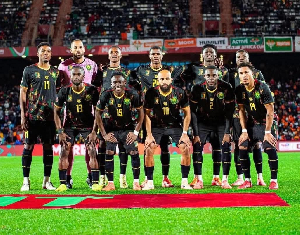Opinions of Thursday, 12 February 2015
Auteur: BBC
US troops fighting Ebola to withdraw
President Obama has said all but 100 of the US troops currently stationed in Liberia to fight the spread of Ebola will pull out by the end of April.
There were 2,800 US troops in West Africa at the height of the epidemic.
His announcement follows the news that the number of new Ebola cases has risen for the second consecutive week, ending a sequence of encouraging declines.
The World Health Organization says Sierra Leone has registered 76 of the 144 new cases, Guinea 65 and Liberia 3.
President Obama, speaking at the White House in the presence of six of the eight US survivors of the deadly virus, said the announcement represented the transition into "the next phase of the fight".
He said that as the military contingent in Liberia was reduced, his government was "expanding our civilian response".
The president said around 10,000 "civilian responders" would stay in West Africa to fight the virus.
"Every case is an ember that, if not contained, can light a new fire. So we're shifting our focus from fighting the epidemic to now extinguishing it," he said.
Around 1,500 US soldiers have already returned from the region, with all troops leaving West Africa forced to undergo a 21-day quarantine period in order to minimise the risk of contagion.
Almost 23,000 people have been infected with Ebola since its outbreak in Guinea in December 2013, and more than 9,000 people have died.
The WHO has said that that the increase in new cases highlights the "considerable challenges" that must still be overcome to end the outbreak.
"Despite improvements in case finding and management, burial practices, and community engagement, the decline in case incidence has stalled," the UN health agency said in a statement.
In Guinea, efforts to end the outbreak are being hampered by a mistrust of aid workers, particularly in the capital city.
"The main threat to achieving our goal of zero cases in 60 days is this resistance in Conakry," said Dr Sakoba Keita, Guinea's national Ebola response co-ordinator.
Unsafe burial practices continue to be a problem in Sierra Leone. More than 40 unsafe burials were recorded in one week, according to the WHO.
Mourners can catch the disease by touching the highly-contagious bodies of the dead.












